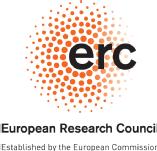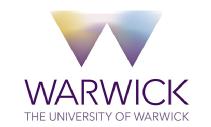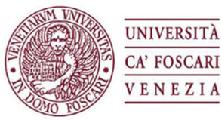Vacancies
Research Fellow (77082-125) for ERC Starting Investigator Project: Aristotle in the Italian Vernacular: Rethinking Renaissance and Early-Modern Intellectual History
Fixed term contract for 18 months. Salary £28,982 - £37,768 per annum.
Italian Studies at the University of Warwick is seeking a postdoctoral Research Fellow as part of the ERC-funded Starting Investigator Grant on ‘Aristotle in the Italian Vernacular: Rethinking Renaissance and Early-Modern Intellectual History (c. 1400-c. 1650)’. The project is a collaboration between the University of Ca’ Foscari, Venice (Dipartimento di Filosofia e Beni Culturali) and the University of Warwick (Italian Studies, School of Modern Languages and Cultures). A team of Research Fellows will be based at Warwick. The project as a whole runs for 5 years from May 2014.
The Research Fellow will have an 18-month appointment and will conduct research on topics related to the interpretation of Aristotle’s works in the Italian vernacular (roughly 1400–1650), with particular attention to the genres of Aristotelian works written in Italian. Main activities will include research, writing articles, organizing colloquia, editing colloquia proceedings, and other tasks as required. You will have opportunities to develop your professional and teaching profile. You will work under the direction of Dr David Lines and Professor Simon Gilson.
By the time of your appointment (foreseen for October 2016) you will hold a PhD or equivalent in Italian, Classics, Philosophy, Intellectual History, or a relevant field; an excellent knowledge of at least English, Italian and Latin; and first-hand familiarity with Medieval/Renaissance philosophy and/or literature and the methods of research in Renaissance literature and/or intellectual history.
Genres of Vernacular Aristotelianism in Renaissance Italy
The research fellow’s project will focus on the variety of genres in Italian vernacular Arisotelianism. Between around 1400 and 1650, Europe experienced a remarkable rise in the number and kinds of works that translated, commented on, or otherwise disseminated the thought of Aristotle. This tradition, which was tied to earlier interpretations through the use of Latin, in Italy and some other countries was also paralleled by a significant effort to use the vernacular as its main medium of communication. In many ways, these interpretations initially looked to Latin (or even Greek) works as stylistic models; it is not clear whether they then became increasingly independent of Latin works, which genres achieved the greatest popularity, and what were the cultural or institutional contexts that favoured the developments that took place.
Aspects of Renaissance Latin Aristotelianism have been studied by a number of scholars in the past 30 or so years. Much less work has been done on Aristotelianism in the vernacular. Warwick has built a considerable reputation in this area, first through a project funded by the United Kingdom’s Arts and Humanities Research Council (‘Vernacular Aristotelianism in Renaissance Italy, c. 1400–c. 1650’) which ran from 2010 to 2014, and now through an ERC project (‘Aristotle in the Italian Vernacular’, 2014–2019) based both at Warwick and in Venice, where the PI (Marco Sgarbi) is based.
The research fellow will make use of and build on the database of vernacular Aristotelian interpretations in Renaissance Italy put together by Warwick staff in an earlier AHRC-funded project (see http://warwick.ac.uk/vernaculararistotelianismdatabase). The successful candidate will draw on the specialized literature on literary, cultural, and philosophical trends in the Renaissance and on a direct reading of the relevant sources in order to produce at least two substantial articles. These will offer an analysis of the development of the genres of vernacular Aristotelianism and contextualize them in terms of the culture, institutions and/or dissemination strategies of the Italian Renaissance.
In addition to the application form, applicants must submit a cover letter (outlining their interest in the position and giving a brief description in around 750 words of how they would design and carry out their project on ‘genres’), an academic CV (including list of publications and any awards received), and one or two writing samples in PDF (if possible including one publication in English). Three reference letters should be sent directly from the named referees to Sharon.Murray@warwick.ac.uk.
For informal enquiries, please contact Dr David Lines, d dot a dot lines at warwick dot ac dot uk.
Complete applications and materials must be received by Feb. 1, 2016.
Interviews to be held 10th March 2016.




